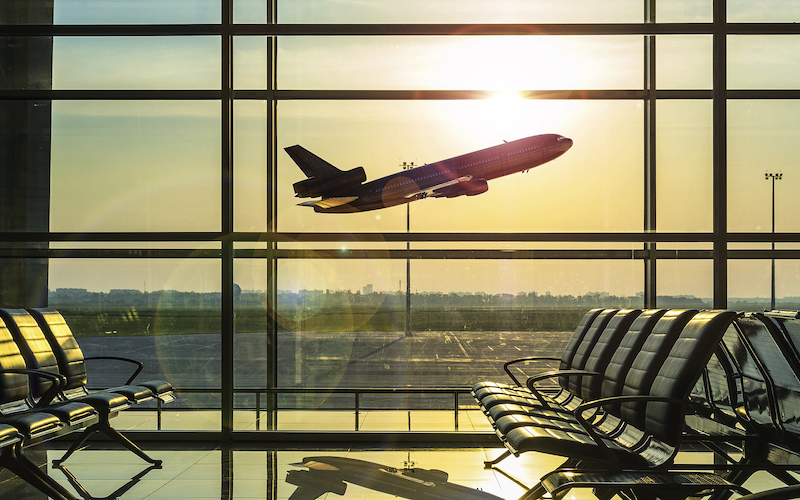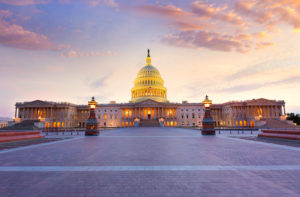
The federal government responds to the coronavirus pandemic by amending its foreign quarantine rules.
An unknown, yet severe respiratory disease spread throughout China in December, resulting in thousands of illnesses and deaths. As the infection spewed across borders beyond China, the world learned that a new form of virus is responsible for the global health crisis.
The World Health Organization has named it COVID-19, or Coronavirus Disease-2019.
The number of confirmed U.S. cases of COVID-19 rises daily, and the risk of its spread, according to experts, remains very high.
Among other urgent efforts to combat the virus, such as the government’s recent decision to suspend travel between the United States and Europe and the United Kingdom for foreign nationals, the Centers for Disease Control and Prevention (CDC) recently issued a temporary regulation that amends its foreign quarantine rules to monitor and control the spread of coronavirus from foreign travelers.
Coronaviruses are a classification of viral infections that often cause mild respiratory symptoms similar to the common cold. COVID-19, however, is a newly identified coronavirus and is distinct in severity from its counterparts.
Experts suspect that the initial outbreak in China was spread from animal-to-person contact, but secondary exposure to COVID-19—the way the virus is currently spreading—results from person-to-person contact.
With the climbing rates of human-transmitted cases, the federal government is concerned with the risks travelers returning from countries with active disease outbreak present to the United States.
In response to COVID-19’s threat, the CDC’s temporary rule requires airlines to gather and report data on passengers and crew members traveling from foreign countries within 24 hours of a request from the CDC. The CDC intends to use this information for various purposes, such as treatment, disease prevention, and potential travel exclusions.
The new rule requires airlines to provide the names, addresses, phone numbers, and email addresses of individuals that may have been exposed to the coronavirus while abroad. The CDC argues that multiple sources of identification increase the chance of establishing contact with travelers. In fact, a CDC review of various contact methods revealed that access to a valid phone number is over 50 percent more effective in establishing contact than relying solely on a name or address.
The use of electronic contact methods also allows the federal government to reach individuals while they are still traveling and provides easier means of sharing information with local governments that may be impacted, explains the CDC.
Once an airline releases its data, the CDC plans to contact individuals and evaluate their risk of spreading COVID-19. Travelers who have been exposed to the coronavirus will undergo medical screening, follow-up care, and medical treatment as needed.
The CDC contends that this contact tracing is necessary for an effective public health response that contains the risk of further transmission of the coronavirus. By taking proactive measures and treating any known carriers of the disease, the CDC explains that such actions will mitigate the number of secondary cases of coronavirus that are contracted in the United States.
Contact tracing is commonly used during public health interventions. The CDC often partners with public health officials at a local, state, and international level to investigate the risks of communicable diseases, such as measles, tuberculosis, and rubella. During the contact tracing process, public health officials collect, analyze, process, and send data to the CDC. This model helps the federal government acquire reliable information on individuals who may present a risk to others.
But one major concern of the CDC is that this data collection process is typically slow, revealing how current regulations are insufficient to meet the pressing nature of the coronavirus outbreak.
Before the new interim rule, foreign quarantine regulations tackled less emergent public health issues but were not equipped to respond to urgent disease threats.
The former regulations permitted the CDC to collect information directly from individuals but restricted the CDC’s access to data from airlines to those “already available and maintained” for the airlines’ internal records.
But attempting to collect information from thousands of individual airline passengers would pose an administrative burden incapable of keeping up with the “ever-changing disease threat,” the CDC argues. Furthermore, airlines may not store the type of information about travelers that the CDC would need to establish contact with passengers.
Accordingly, the CDC’s temporary rule seeks to address some of these inadequacies in its foreign quarantine regulations.
The enhanced reporting requirements under the temporary rule, however, may present increased technical challenges and compliance costs for airlines. Although the CDC acknowledges that some airlines may not currently collect all of the requested data, it maintains that compliance with the rule is mandatory given the severity of the coronavirus. Recognizing that this rule requires swift administrative changes for airlines, the CDC notes that it will consider an airline’s good faith compliance when assessing implementation mistakes.
Compliance challenges and increased administrative costs are just some of the mounting concerns facing airline industries in the wake of the COVID-19 epidemic. As airlines prepare to invest more money and resources in data collection, they must also handle financial pressure from plummeting revenue due to reduced travel. According to the International Air Transport Association (IATA), airlines will lose about $30 billion this year—the highest loss in over a decade.
Both the airline industry and the CDC recognize the need for collaboration in the battle against COVID-19.
In a recent statement, IATA’s director general Alexandre de Juniac said, “Airlines and governments are in this together. We have a public health emergency, and we must try everything to keep it from becoming an economic crisis.”
The CDC maintains that it is committed to understanding the financial costs of the interim final rule on the airline industry, as well as the public health benefits that may result from increased data collection.
The foreign quarantine amendments are one of many regulatory measures the federal government has taken in its race against COVID-19—a virus that has now become a pandemic.



